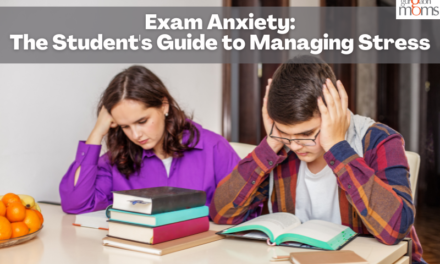9 Tips to Stay Risk-Free While Studying Abroad
Worried about your safety while studying abroad? These 9 tips will ensure a safety net for students seeking foreign education.
Whether you are a first-time traveler or a seasoned one, you can’t help but feel the pangs of distress at the thought of studying abroad. Add to that the challenges of getting accustomed to the new environment, food, language, culture, and climate. Things can go awry if you haven’t really made a structured safety plan. While there is less than one in a million chances that you should get into trouble, you cannot afford to ignore these 9 precautionary tips to enjoy a risk-free stint while studying abroad.
1.Take Care of Your Health.
Staying in a new geography brings its own set of challenges. You have to get accustomed to the change in weather, food, travel, and living alone. These challenges can take a toll on your health. Also, balancing your hectic college schedule with the demands of daily life can become overwhelming. Overlooking any of these important details could derail your progress.
Take care of your health. Wear suitable clothing to protect yourself. Eating right is sacrosanct, as everything you do hinges on your good health. So late nights, and bingeing on junk food are a strict no-no. Also, you need to structure your day to calendar all the activities you’d like to do. Don’t over populate your calendar to maximize output. These tricks will backfire sooner than you think. Rest, relaxation and leisure time are equally important. Follow the basic tenets of good living practices to ensure that you have a smooth functioning body and mind.
2.Get That Vaccination You Need to Protect Yourself From Foreign Diseases.
Vaccinations are not just for immigration records; they are your safety net against an invasion of foreign viruses on your body. Based on which country you are flying to, stay up to date with your vaccinations, and guard yourself against potential threats. If there is an epidemic alert released by WHO, you must ensure that you have taken all the necessary precautions.
3.Protect Your Wealth and Belongings.
Keep your money, credit cards, and other financial instruments in safe places. It would also make sense for you to get your own debit or credit cards and a bank account near your place of stay. Keep your belongings such as your mobile phone, laptop, and other expensive devices in safe places. If you use public transport to travel to your college, make sure to avoid traveling alone in unsafe zones. Use public modes of transportation such as the bus, metro, or train if you are traveling late. As far as possible, try to blend in with the populace, instead of looking like a lost foreigner with expensive looking gadgets.
4.Set Up Safety Protocols in Case of Emergency.
Who would you reach out to in case of an emergency? Set up contact points within and outside the school campus with reliable people. Connect with your family regularly, and keep them posted about your daily business. Keep phone numbers of doctors, hospitals, police stations, and the Indian embassy handy, in case you need to reach out. Stay connected with the international community and the student alumni group. They can help you in times of distress.
5.Stay Aware of the Civic and Criminal Laws of the Country You Want to Go to.
Some countries may have different or stringent laws compared to your own, including punishment for jay walking, littering, or traveling without appropriate ID. So stay on the right side of the law, when you are going for higher studies abroad. Make sure that you have understood their laws, and remain compliant.
6.Register With MADARD for Help, Grievances, and Complaints.
The Government of India set up a Grievance management counseling body to help Indians traveling or working abroad. Before flying offshore, sign up with MADAD and comply with their documentation requirements. You never know when you’d need their help.
6.Assess Risk in Whatever You Do.
Be a smart and suave when you are in a foreign location. If you have to stay back late at college for extra assignments, make sure to have an in-campus accommodation to spend the night. If you have to travel a long distance, seek the company of your co-workers or colleagues. Evaluate all safe travel and stay options before choosing one. Always be aware of your surroundings, and take adequate precautions to ensure your safety.
8.Stay Safe From Bad Habits, Negative Influences, and Campus Bullying.
Far away from home, it is easy to get lured into temptations. An act of innocent fun may turn into a nasty problem. As a precaution, stay away from negative influences. You have not traveled this far to get embroiled in nefarious activities. Stay focused on your career goals.
It’s important to note that colleges have a zero tolerance policy towards campus bullying and student harassment. Their objective is to provide a safe environment to all their students.You can rest assured that it is in the interest of international universities to provide you maximum security.
9.Get Health Insurance and Medical Insurance Policy Coverage.
Each country and foreign university list their mandatory inoculation prerequisites. Some universities abroad may have their own compulsory insurance policy for their students.In some countries, you may qualify to receive coverage under the country’s national health coverage. You can also opt for a private policy, to customize the insurance coverage. Broadly speaking, your policy should cover medical expenses, accidents and sickness, travel assistance service, and medical evacuation and repatriation. Speak to other international students or on-campus International Student Office to figure out which policy works best for your needs.
Study abroad can be risk-free if you can follow these 9 guidelines diligently. It is a myth that education abroad is risky. In reputed colleges, student safety is priority no 1. As long as you can follow these 9 safety guidelines, you are in good hands





Thanks for sharing sweetie.